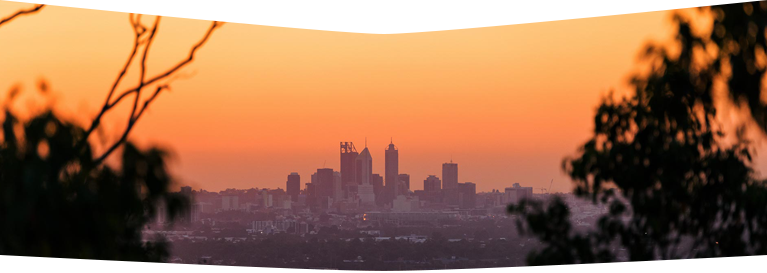Our beloved Dr Bill Babe will be laid to rest as per the following notice.
We offer our sincere condolences to Dr Babe’s family, friends and colleagues, his loss will be felt deeply by all.
Mead Medical will at close at 2pm for his service on the 18th November, all patients and staff are invited to attend and celebrate his life.
FUNERAL NOTICE
A funeral service to honour and celebrate the life of the late Most Worshipful Brother, Dr William (Bill) Gordon Babe, Past Grand Master – The Grand Lodge of Western Australia and Hacketts Gully; will be conducted in Stirk Park, Elizabeth Street, Kalamunda, commencing at 2.30pm Wednesday 18.11.2020.
Family request formal dress to be worn please.
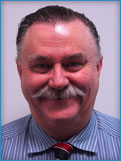 It is with a very heavy heart, we report that we lost our beloved Director Dr William Babe overnight.
It is with a very heavy heart, we report that we lost our beloved Director Dr William Babe overnight.
Bill was part of the heart and soul of Mead Medical and will be deeply missed by all.
Vitamins and Skin Cancers…can your diet help protect you from skin cancers? Let’s look at the A, B, C, D and E’s of skin cancer protection…
Sun protective clothing, a wide brimmed hat, sunglasses, sunscreen had all work very well for protecting the skin from the dangers of the Australian sun, however, some people who spend hours in the direct sun every day might benefit from a little more protection than physical barriers to help combat their risk of skin cancer.
VITAMIN A
Vitamin A has been linked to lowering skin cancer in a large study of more than 125,000 people in America. There are many established benefits of vitamin A including protecting your eyes from age related decline, supporting a healthy immune system and bone health. A recent study published in the JAMA Dermatology journal found that there is an inverse association between consuming vitamin A and the risk of cutaneous squamous cell carcinoma. What this means it that for people who ate the recommended amount of vitamin A there was a 15% lower chance that they would develop Cutaneous Squamous Cell Carcinoma.
Cutaneous SCC is a type of non-melanoma skin cancer and one of the most common forms of the disease after Basal Cell Carcinoma in Australia. While not as dangerous as melanoma, it has been known to spread to other parts of the body from the skin and pose significant risk.
The best source of vitamin A is from a balanced diet filled with fruits, vegetables and healthy animal products. Some foods with a high percentage of vitamin A include: liver from beef, lamb or other sources, cod liver oil, fish such as salmon, mackerel and tuna, cheeses such as goats cheese, cheddar and camembert.
It is important to note that too much vitamin A can have negative consequences on the body. The recommended amount of vitamin A per day is between 700 and 900 micrograms, exceeding this can cause liver damage, thinning of the bones and osteoporosis.
Thus, natural sources of vitamin A are a much better solution than supplements for getting the amounts of vitamin A that you need. The 2019 study conducted over 25 years showed that people who took vitamin A supplements did not appear to have a lower chance of developing SCC. Thus, eating the right foods and having a balanced diet is the best way to get the vitamin A you need to fight the risk of skin cancer.
While it is great news about vitamin A and its impact on reducing the risk of skin cancer, we need to understand that the right amount of vitamin A in your diet still cannot replace more traditional forms of protecting your skin against the sun. When going outside, particularly on days with a high UV index, it is still important to wear sunscreen, slip on long sleeved, protective clothing and wear a hat that will cover the face, neck and ears.
VITAMIN B
Cancer Council NSW helped fund one of the biggest discoveries in skin cancer research – that vitamin B3 can help reduce non-melanoma skin cancers. Five years after this grant ended, we review what the lead researcher, Professor Diona Damian said about her pioneering work.
It all began in 2008, when Cancer Council NSW awarded a research grant to Professor Diona Damian and her team at the University of Sydney. Over the next three years, the researchers led the way globally in exploring a new approach to tackling skin cancer.
“We were interested in finding new ways of preventing and treating skin cancer, because that’s our national cancer. It’s the most common cancer in Australia, more than four times as common as all other cancers put together”, Professor Damian said.
BREAKTHROUGH FINDINGS
When Professor Damian’s team began their work, they knew that even low doses of UV radiation from the sun could cause skin cancer. UV radiation does this not only by damaging the DNA in skin cells, but also by suppressing our skin’s immune defences. Professor Damian had already tested a number of compounds which could potentially prevent this sunlight-induced immune suppression, and found that a form of vitamin B3, called nicotinamide, had the greatest potential.
Thanks to Cancer Council NSW funding, her team was able to prove that nicotinamide, either as a topical lotion or a daily tablet, is highly effective in providing immune protection. Nicotinamide does this by replenishing cellular energy, which also enables faster and more efficient DNA repair following sun exposure.
A LANDMARK CLINICAL TRIAL
Since her Cancer Council NSW project grant concluded, Professor Damian’s research on nicotinamide has made incredible progress. Her team won a grant from the National Health and Medical Research Council to undertake a landmark skin cancer prevention clinical trial called ONTRAC (“Oral Nicotinamide To Reduce Actinic Cancer”).
The trial was conducted across the Royal Prince Alfred and Westmead Hospitals and included 386 patients who were randomly assigned to receive either a twice daily dose of nicotinamide or a placebo for one year. All the patients had been diagnosed with at least two non-melanoma skin cancers in the previous 5 years, which meant they were at a high risk of developing more cancers. During the twelve months of study, this group of patients collectively grew 800 new skin cancers.
WHAT DID THE TRIAL DISCOVER?
- The final results of ONTRAC were published in the New England Journal of Medicine and made international headlines.
- The team found that at 12 months, the rate of non-melanoma skin cancers was 23% lower in the nicotinamide group than in the placebo group.
- The number of precancerous lesions was also 13% lower among the people taking nicotinamide compared to those not taking nicotinamide.
WHO CAN USE NICOTINOMIDE (VITAMIN B3) TO PREVENT SKIN CANCERS?
Professor Damian emphasised that using nicotinamide to prevent skin cancer is a high-dose treatment rather than a supplement. “This treatment is only for people with a defined medical condition – multiple skin cancers.”
“It’s not suitable for the general population, as we do not have any evidence that it would be beneficial in a lower risk setting.”
Before taking nicotinamide, people should consult with their GP to see whether nicotinamide is suitable for them. It is also very important that people planning to take vitamin B3 take the amide form, nicotinamide, and not the nicotinic acid form. “Nicotinic acid has a range of unpleasant side effects – including flushing, headache and low blood pressure – that we don’t see with nicotinamide”, says Professor Damian.
HOW DOES VITAMIN B3 WORK?
Ultraviolet (UV) radiation causes skin cancer by damaging the DNA in cells, reducing the amount of energy available to repair damage, and interfering with the immune system in skin cells. DNA provides “instructions” for cells to grow normally. Damaged DNA can result in uncontrolled growth — skin cancer.
Vitamin B3 helps repair UV-damaged cells and reduce the risk of skin cancer by:
- Making more energy available to cells
- Helping repair damaged DNA, and
- Reducing the immune suppression caused by UV radiation1.
In high-risk people who have already had a non-melanoma skin cancer, i.e. a basal cell carcinoma (BCC) or a squamous cell carcinoma (SCC), taking vitamin B3 tablets daily reduces the risk of future non-melanoma skin cancer.
HOW MUCH VITAMIN B3 TO TAKE?
The largest trial of vitamin B treatment2 showed that it is an effective and low-risk treatment. At a dose of 500mg twice daily, taken for a year, the rate of new non-melanoma skin cancers was reduced by approximately 23 per cent:
- Basal cell carcinomas were reduced by 20 per cent. Less serious superficial basal cell carcinomas were prevented more effectively than more aggressive forms of basal cell carcinoma1.
- Squamous cell carcinomas were reduced by 30 per cent. This reduction was the same for superficial and more aggressive squamous cell carcinomas.
Some people get better results than this. In an earlier study3, nicotinamide was found to reduce non-melanoma skin cancer rates by up to 75 per cent, but these figures have not been reproduced across larger numbers of patients.
Vitamin B seems to work best in people with the highest levels of risk, i.e. those who have had many BCCs or SCCs previously2.
Oral nicotinamide is now recognised as an important part of the routine treatment of people at high risk of BCC and SCC and is about to become part of the Cancer Council’s national treatment guidelines for BCC and SCC4.
Protection from vitamin B3 only lasts while it is being taken5. In other words, for long term reduction of non-melanoma skin cancer, it needs to be taken indefinitely.
WHAT FOODS IS VITAMIN B3 PRESENT IN?
Vitamin B3 is present in small amounts in yeast, meat, fish, eggs, milk, nuts, legumes and cereals12. The average daily requirement for vitamin B3 is 15-20mg1. This is easily met by a balanced diet containing the foods mentioned above. But the amount shown to reduce skin cancer risk is about 50 times this amount and can’t be achieved by dietary intake alone.
VITAMIN C
Vitamin C is a potent antioxidant drug that can be used topically in dermatology to treat and prevent changes associated with photoageing. It can also be used for the treatment of hyperpigmentation. Because it is unstable and difficult to deliver into the dermis in the optimum dosage, research is being directed to find stable compounds of Vitamin C and newer methods of delivery of Vitamin C into the dermis.
The toxic effects of vitamin C on tumor cells may be related to the induction of oxidative stress in cells. However, when the antioxidation system of tumor cells is incomplete, the balance is destroyed, and the oxygen-promoting effect of vitamin C leads to the death of tumor cells (Kim K. et al., 2015; Uetaki et al., 2015). Vitamin C is often used as an adjunct to chemotherapy for tumors. Vitamin C can also increase 5-hydroxymethylcytosine (5hmC) content in melanoma cells and cause a decrease in tumor-cell invasiveness and growth (Gustafson et al., 2015). Thus, vitamin C can be regarded as a potential antitumor drug for the prevention of invasion and metastasis of melanoma, which weakens the tumor capsule integrity and invasiveness and reduces the degree of malignancy.
However, there is still a lack of understanding about the route of administration for vitamin C, the dosage of medication and the complications. We should increase awareness of the fact that high concentrations of vitamin C induce apoptosis of malignant melanoma cells, while low concentrations promote the growth of tumor cells (Yang et al., 2017). H
VITAMIN D
Vitamin D forms in the skin when it is exposed to UV from sunlight. It can also be obtained from some foods. We need vitamin D to maintain good health and to keep bones and muscles strong and healthy.
The best source of vitamin D is UVB radiation from the sun. UV radiation levels vary depending on location, time of year, time of day, cloud coverage and the environment.
For most people, adequate vitamin D levels are reached through regular incidental exposure to the sun. When the UV Index is 3 or above (such as during summer), most people maintain adequate vitamin D levels just by spending a few minutes outdoors on most days of the week.
In late autumn and winter in some southern parts of Australia, when the UV Index falls below 3, spend time outdoors in the middle of the day with some skin uncovered. Being physically active (e.g. gardening or going for a brisk walk) also helps boost vitamin D levels.
Adequate levels of Vitamin D promote good immunity. Vitamin D can modulate the innate and adaptive immune responses. Deficiency in vitamin D is associated with increased autoimmunity as well as an increased susceptibility to infection. At this point in time however we have insufficient evidence to recomment Vitamin D supplementation as a method to decrease Malignant Melanoma.
VITAMIN E
Vitamin E is an important fat-soluble antioxidant and has been in use for more than 50 years in dermatology. It is an important ingredient in many cosmetic products. It protects the skin from various deleterious effects due to solar radiation by acting as a free-radical scavenger. Experimental studies suggest that vitamin E has antitumorigenic and photoprotective properties
By Dr Leena Uppal
It’s winter time..but don’t let less skin fool you-it is still our largest human organ. The average adult carries 3.5kg and 2sq meters of it!
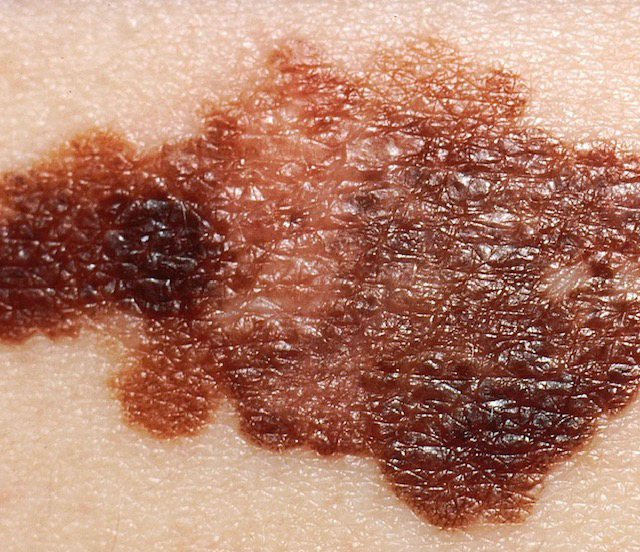
Did you know that Australia has one of the highest rates of Melanoma in the world?
This year it is expected there will be close to 1 diagnosis of Melanoma every 30 min
Melanoma is the 3rd most common cancer in both Australian men and women and THE most common cancer in Australians aged 15-39 years
SCAN your skin
Is it Sore?
Is it Changing?
Is it Abnormal compared to the rest of your spots?
Is it New-especially over the age of 40?
If you haven’t had a skin check in the last year, it is an easy and painless procedure, book yours in today.
By Dr Leena Uppal
Did you know that Breast Screen WA provides FREE screening mammograms to all Australian women over 40 every 2 years?
Although 75% of all breast cancers occur in women over 50, 25% occur in younger women
Did you know that 1 in 7 women in Australia will develop Breast Cancer in their lifetime?
The risk increases with age
Mammograms can detect 70-90% breast cancers and are the only validated screening tool to detect early stage breast cancer
Breast cancer cannot be prevented but the earlier it is detected the better your chance at successful treatment
And if you are not sure whether you need a mammogram or ultrasound of your breasts or both, book an appointment to see your GP today.
This is a fantastic website
If you are > 40 yrs and haven’t had a mammogram in the last 2 years book yours in today.
https://www.breastscreen.health.wa.gov.au/
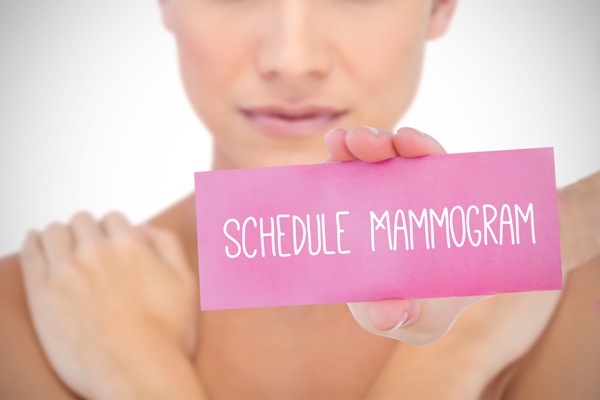
Mead Medical is pleased to advise you that Medicare now permits Telehealth consults for patients that have attended Mead Medical in the last 12 months and meet the following criteria:
- the person has been diagnosed with COVID-19 virus but who is not a patient of a hospital; or
- the person has been required to isolate themselves in quarantine in accordance with home isolation guidance issued by Australian Health Protection Principal Committee (AHPPC); or
- the person is considered more susceptible to the COVID-19 virus being a person who is:
- at least 70 years old; or
- at least 50 years old and is of Aboriginal or Torres Strait Islander descent; or
- is pregnant; or
- is a parent of a child under 12 months; or
- is already under treatment for chronic health conditions or is immune compromised; or
- the person meets the current national triage protocol criteria for suspected COVID-19 infection.
Our current protocol for conducting a Telehealth consultation is via phone commencing today.
Next week video conferencing will be available for selected GPs, which will require you to create a Skype account if you do not have one already.
Our protocol for making a Telehealth appointment is as follows:
- Call Mead Medical administration on 9293 4455 with your name, usual doctor, and Skype address or phone number.
- You are able to make Telehealth appointments online on HOTDOC.
- Please indicate at the time of booking if your consultation is urgent so that an earlier consultation can be arranged if possible.
ALERT: CORONAVIRUS / WUHAN VIRUS
If you have recently travelled to Wuhan, China and have a fever, difficulty breathing, a cough or sore throat please
DO NOT ENTER THE CLINIC.
Please call the practice and ask for Nurse Manager for advice on 9293 4455.
For further information on this virus please refer to following link:
https://www1.health.gov.au/internet/main/publishing.nsf/Content/ohp-novel-coronavirus.htm
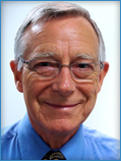 Our beloved Dr Russell Tosh retired as a General Practitioner with Mead Medical on the 24th of December.
Our beloved Dr Russell Tosh retired as a General Practitioner with Mead Medical on the 24th of December.
Dr Tosh was much loved and Iconic part of Mead Medical for 40 years and will be missed by staff, colleagues and patients.
We wish him all the best in his twilight years.
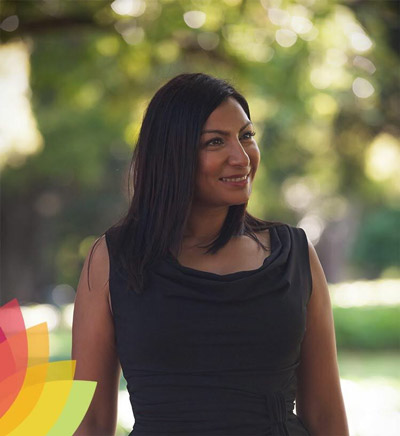 I’m Dr Leena Uppal from Mead Medical.
I’m Dr Leena Uppal from Mead Medical.
Medical Myth Busting and the Black Salve
Myth: Black salve can be used safely to treat skin cancer and other skin conditions naturally and effectively. This myth is responsible for serious harm and even death in some cases. The sale of Black Salve in Australia is illegal. But-it is also easily available online from countries with less regulation. It most commonly it contains bloodroot and zinc Chloride. Zinc chloride is a synthetic corrosive chemical with nothing natural about it. This combination causes tissue destruction and scabbing and the dead tissue eventually sloughs away.
It has an interesting history.
In the 1850’s American surgeon, Jesse Fell popularised Fell’s Paste. He learned of bloodroot from the Native Americans and added in zinc chloride. On emigrating to London he briefly established a lucrative cancer practice using this paste but was soon ridiculed by the medical establishment.
In the 1920’s, Harry Hoxsey, an insurance salesman, began selling Hoxey’s Red Paste which had antimony trisulfide added to the bloodroot and zinc chloride. . Hoxsey opened 17 clinics across the US and treated thousands of patients-but the American Medical Association branded Hoxsey a fraud and the US FDA posted warnings about Hoxsey’s Paste in 46,000 US post offices!
In the 1930’s Dr Frederick Moh noted that zinc chloride fixed and histologically preserved skin in vivo. He patented a paste that contained stibnite and bloodroot and zinc chloride to help him map tumour margins. This technique was very successful but Dr Moh patented the paste to prevent it being used improperly as standalone therapy.
In 1975 Dr Almeida Goncalves, developed a paste with galangal + bloodroot + zinc chloride. He applied this salve for 24 hours to a lesion as well as 5-10mm of normal looking skin around it. Biopsies taken during 5-10 yr follow up showed no recurrences but there were high failure rates on initial application. Up to 38% BCCs and 21% SCCs failed to respond. Multiple applications were needed. This suggests that treatment Black Salve is very risky and patients using Black Salve are at considerable risk of residual cancer if they do not have biopsies after salve application.
In the 1990’s Greg Caton formed Alpha Omega Labs, which made Black Salve. Caton served a US prison sentence for mail fraud and the introduction of new, unapproved drugs, but after he got out of prison he moved to Ecuador where he still sells Black Salve online to the world, just outside US jurisdiction.
In summary, Black Salve is not natural, it is not cancer specific and it harms normal human tissue!
Medical Myth number one, busted.
 Welcome Dr Celia Worth
Welcome Dr Celia Worth
We welcome Dr Celia Worth to the Mead Medical team.
Dr Worth is a mother of two young children and completed her medical degree at the University of Queensland in 2008. She then she went on to complete five years of speciality training in obstetrics and gynaecology at predominantly Liverpool Hospital, a busy tertiary centre in Sydney.
In 2017 she made the difficult decision to follow her husband back to his home town in Perth and refocus her priorities to work life balance and being a mother.
Since that time she has been working as a career medical officer in obstetrics and gynaecology at Joondalup Hospital.
For now, she is working towards completing the general practitioner component of becoming a GP obstetrician but hopes to complete her specialist training in the future once her children are at school.
Celia is passionate about every aspect of women’s health and providing women with equitable access to all available resources, information and health care providers.
Her current aspirations include having another child, providing care to women with a holistic approach and locuming in remote areas of Western Australia to bridge the gap in health care provision for women.
Welcome back Dr Anna Dillon and Dr Sandy Braiuka
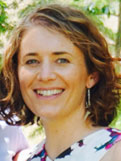
Dr Anna Dillon
We welcome back Dr Anna Dillon and Dr Sandy Braiuka who are returning to the Mead Medical team after finishing their training at other practices.
Dr Anna Dillon initially qualified as a Physiotherapist in 2002 and worked in NZ, the UK and Australia before deciding to study medicine at Notre Dame in Fremantle. She graduated in 2012 and worked at Fremantle Hospital. While doing a GP term in Carnarvon she discovered her passion for general practice and womens health and she has subsequently undertaken 2 years of womens health training and is part of the Mead team who provide obstetric care at Bentley Hospital. Anna is passionate about all aspects of general practice with a particular interest in women’s health, sexual health, paediatrics, sports medicine and preventative health. Outside of work Anna and her partner are kept busy with their gorgeous infant son. She also enjoys running and mountain biking and exploring WA.
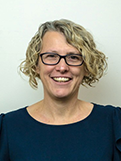
Dr Sandy Braiuka
Dr Sandy Braiuka has enjoyed careers in many aspects of health care for over 30 years, including as a teacher, researcher, naturopath, kinesiologist and now as a Doctor. She has a special interest in sexual health, paediatrics, mental health, palliative care and all aspects of women’s health including antenatal care and insertion and removal of mirenas and implanons. Her passion is integrative medicine and the exploration of the mind-body connection through mindfulness, meditation and preventative health care. Outside of medicine, Sandy loves singing with the Gay and Lesbian choir and traveling to explore new places, cultures and food.
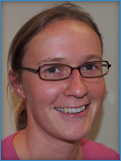
Goodbye Dr Helen Wilcox
We’re sad to advise that Dr Helen Wilcox has left Mead. She and her husband have made the decision to move their family back to the UK. Helen spent 6 years with us and will be sorely missed by patients, staff and fellow Doctors alike. We wish Helen and her family the best of luck for the next phase of their lives.
Funeral Notice – Dr Bill Babe
Our beloved Dr Bill Babe will be laid to rest as per the following notice.
We offer our sincere condolences to Dr Babe’s family, friends and colleagues, his loss will be felt deeply by all.
Mead Medical will at close at 2pm for his service on the 18th November, all patients and staff are invited to attend and celebrate his life.
FUNERAL NOTICE
A funeral service to honour and celebrate the life of the late Most Worshipful Brother, Dr William (Bill) Gordon Babe, Past Grand Master – The Grand Lodge of Western Australia and Hacketts Gully; will be conducted in Stirk Park, Elizabeth Street, Kalamunda, commencing at 2.30pm Wednesday 18.11.2020.
Family request formal dress to be worn please.
Sad News
 It is with a very heavy heart, we report that we lost our beloved Director Dr William Babe overnight.
It is with a very heavy heart, we report that we lost our beloved Director Dr William Babe overnight.
Bill was part of the heart and soul of Mead Medical and will be deeply missed by all.
Vitamins and Skin Cancers
Vitamins and Skin Cancers…can your diet help protect you from skin cancers? Let’s look at the A, B, C, D and E’s of skin cancer protection…
Sun protective clothing, a wide brimmed hat, sunglasses, sunscreen had all work very well for protecting the skin from the dangers of the Australian sun, however, some people who spend hours in the direct sun every day might benefit from a little more protection than physical barriers to help combat their risk of skin cancer.
VITAMIN A
Vitamin A has been linked to lowering skin cancer in a large study of more than 125,000 people in America. There are many established benefits of vitamin A including protecting your eyes from age related decline, supporting a healthy immune system and bone health. A recent study published in the JAMA Dermatology journal found that there is an inverse association between consuming vitamin A and the risk of cutaneous squamous cell carcinoma. What this means it that for people who ate the recommended amount of vitamin A there was a 15% lower chance that they would develop Cutaneous Squamous Cell Carcinoma.
Cutaneous SCC is a type of non-melanoma skin cancer and one of the most common forms of the disease after Basal Cell Carcinoma in Australia. While not as dangerous as melanoma, it has been known to spread to other parts of the body from the skin and pose significant risk.
The best source of vitamin A is from a balanced diet filled with fruits, vegetables and healthy animal products. Some foods with a high percentage of vitamin A include: liver from beef, lamb or other sources, cod liver oil, fish such as salmon, mackerel and tuna, cheeses such as goats cheese, cheddar and camembert.
It is important to note that too much vitamin A can have negative consequences on the body. The recommended amount of vitamin A per day is between 700 and 900 micrograms, exceeding this can cause liver damage, thinning of the bones and osteoporosis.
Thus, natural sources of vitamin A are a much better solution than supplements for getting the amounts of vitamin A that you need. The 2019 study conducted over 25 years showed that people who took vitamin A supplements did not appear to have a lower chance of developing SCC. Thus, eating the right foods and having a balanced diet is the best way to get the vitamin A you need to fight the risk of skin cancer.
While it is great news about vitamin A and its impact on reducing the risk of skin cancer, we need to understand that the right amount of vitamin A in your diet still cannot replace more traditional forms of protecting your skin against the sun. When going outside, particularly on days with a high UV index, it is still important to wear sunscreen, slip on long sleeved, protective clothing and wear a hat that will cover the face, neck and ears.
VITAMIN B
Cancer Council NSW helped fund one of the biggest discoveries in skin cancer research – that vitamin B3 can help reduce non-melanoma skin cancers. Five years after this grant ended, we review what the lead researcher, Professor Diona Damian said about her pioneering work.
It all began in 2008, when Cancer Council NSW awarded a research grant to Professor Diona Damian and her team at the University of Sydney. Over the next three years, the researchers led the way globally in exploring a new approach to tackling skin cancer.
“We were interested in finding new ways of preventing and treating skin cancer, because that’s our national cancer. It’s the most common cancer in Australia, more than four times as common as all other cancers put together”, Professor Damian said.
BREAKTHROUGH FINDINGS
When Professor Damian’s team began their work, they knew that even low doses of UV radiation from the sun could cause skin cancer. UV radiation does this not only by damaging the DNA in skin cells, but also by suppressing our skin’s immune defences. Professor Damian had already tested a number of compounds which could potentially prevent this sunlight-induced immune suppression, and found that a form of vitamin B3, called nicotinamide, had the greatest potential.
Thanks to Cancer Council NSW funding, her team was able to prove that nicotinamide, either as a topical lotion or a daily tablet, is highly effective in providing immune protection. Nicotinamide does this by replenishing cellular energy, which also enables faster and more efficient DNA repair following sun exposure.
A LANDMARK CLINICAL TRIAL
Since her Cancer Council NSW project grant concluded, Professor Damian’s research on nicotinamide has made incredible progress. Her team won a grant from the National Health and Medical Research Council to undertake a landmark skin cancer prevention clinical trial called ONTRAC (“Oral Nicotinamide To Reduce Actinic Cancer”).
The trial was conducted across the Royal Prince Alfred and Westmead Hospitals and included 386 patients who were randomly assigned to receive either a twice daily dose of nicotinamide or a placebo for one year. All the patients had been diagnosed with at least two non-melanoma skin cancers in the previous 5 years, which meant they were at a high risk of developing more cancers. During the twelve months of study, this group of patients collectively grew 800 new skin cancers.
WHAT DID THE TRIAL DISCOVER?
- The final results of ONTRAC were published in the New England Journal of Medicine and made international headlines.
- The team found that at 12 months, the rate of non-melanoma skin cancers was 23% lower in the nicotinamide group than in the placebo group.
- The number of precancerous lesions was also 13% lower among the people taking nicotinamide compared to those not taking nicotinamide.
WHO CAN USE NICOTINOMIDE (VITAMIN B3) TO PREVENT SKIN CANCERS?
Professor Damian emphasised that using nicotinamide to prevent skin cancer is a high-dose treatment rather than a supplement. “This treatment is only for people with a defined medical condition – multiple skin cancers.”
“It’s not suitable for the general population, as we do not have any evidence that it would be beneficial in a lower risk setting.”
Before taking nicotinamide, people should consult with their GP to see whether nicotinamide is suitable for them. It is also very important that people planning to take vitamin B3 take the amide form, nicotinamide, and not the nicotinic acid form. “Nicotinic acid has a range of unpleasant side effects – including flushing, headache and low blood pressure – that we don’t see with nicotinamide”, says Professor Damian.
HOW DOES VITAMIN B3 WORK?
Ultraviolet (UV) radiation causes skin cancer by damaging the DNA in cells, reducing the amount of energy available to repair damage, and interfering with the immune system in skin cells. DNA provides “instructions” for cells to grow normally. Damaged DNA can result in uncontrolled growth — skin cancer.
Vitamin B3 helps repair UV-damaged cells and reduce the risk of skin cancer by:
- Making more energy available to cells
- Helping repair damaged DNA, and
- Reducing the immune suppression caused by UV radiation1.
In high-risk people who have already had a non-melanoma skin cancer, i.e. a basal cell carcinoma (BCC) or a squamous cell carcinoma (SCC), taking vitamin B3 tablets daily reduces the risk of future non-melanoma skin cancer.
HOW MUCH VITAMIN B3 TO TAKE?
The largest trial of vitamin B treatment2 showed that it is an effective and low-risk treatment. At a dose of 500mg twice daily, taken for a year, the rate of new non-melanoma skin cancers was reduced by approximately 23 per cent:
- Basal cell carcinomas were reduced by 20 per cent. Less serious superficial basal cell carcinomas were prevented more effectively than more aggressive forms of basal cell carcinoma1.
- Squamous cell carcinomas were reduced by 30 per cent. This reduction was the same for superficial and more aggressive squamous cell carcinomas.
Some people get better results than this. In an earlier study3, nicotinamide was found to reduce non-melanoma skin cancer rates by up to 75 per cent, but these figures have not been reproduced across larger numbers of patients.
Vitamin B seems to work best in people with the highest levels of risk, i.e. those who have had many BCCs or SCCs previously2.
Oral nicotinamide is now recognised as an important part of the routine treatment of people at high risk of BCC and SCC and is about to become part of the Cancer Council’s national treatment guidelines for BCC and SCC4.
Protection from vitamin B3 only lasts while it is being taken5. In other words, for long term reduction of non-melanoma skin cancer, it needs to be taken indefinitely.
WHAT FOODS IS VITAMIN B3 PRESENT IN?
Vitamin B3 is present in small amounts in yeast, meat, fish, eggs, milk, nuts, legumes and cereals12. The average daily requirement for vitamin B3 is 15-20mg1. This is easily met by a balanced diet containing the foods mentioned above. But the amount shown to reduce skin cancer risk is about 50 times this amount and can’t be achieved by dietary intake alone.
VITAMIN C
Vitamin C is a potent antioxidant drug that can be used topically in dermatology to treat and prevent changes associated with photoageing. It can also be used for the treatment of hyperpigmentation. Because it is unstable and difficult to deliver into the dermis in the optimum dosage, research is being directed to find stable compounds of Vitamin C and newer methods of delivery of Vitamin C into the dermis.
The toxic effects of vitamin C on tumor cells may be related to the induction of oxidative stress in cells. However, when the antioxidation system of tumor cells is incomplete, the balance is destroyed, and the oxygen-promoting effect of vitamin C leads to the death of tumor cells (Kim K. et al., 2015; Uetaki et al., 2015). Vitamin C is often used as an adjunct to chemotherapy for tumors. Vitamin C can also increase 5-hydroxymethylcytosine (5hmC) content in melanoma cells and cause a decrease in tumor-cell invasiveness and growth (Gustafson et al., 2015). Thus, vitamin C can be regarded as a potential antitumor drug for the prevention of invasion and metastasis of melanoma, which weakens the tumor capsule integrity and invasiveness and reduces the degree of malignancy.
However, there is still a lack of understanding about the route of administration for vitamin C, the dosage of medication and the complications. We should increase awareness of the fact that high concentrations of vitamin C induce apoptosis of malignant melanoma cells, while low concentrations promote the growth of tumor cells (Yang et al., 2017). H
VITAMIN D
Vitamin D forms in the skin when it is exposed to UV from sunlight. It can also be obtained from some foods. We need vitamin D to maintain good health and to keep bones and muscles strong and healthy.
The best source of vitamin D is UVB radiation from the sun. UV radiation levels vary depending on location, time of year, time of day, cloud coverage and the environment.
For most people, adequate vitamin D levels are reached through regular incidental exposure to the sun. When the UV Index is 3 or above (such as during summer), most people maintain adequate vitamin D levels just by spending a few minutes outdoors on most days of the week.
In late autumn and winter in some southern parts of Australia, when the UV Index falls below 3, spend time outdoors in the middle of the day with some skin uncovered. Being physically active (e.g. gardening or going for a brisk walk) also helps boost vitamin D levels.
Adequate levels of Vitamin D promote good immunity. Vitamin D can modulate the innate and adaptive immune responses. Deficiency in vitamin D is associated with increased autoimmunity as well as an increased susceptibility to infection. At this point in time however we have insufficient evidence to recomment Vitamin D supplementation as a method to decrease Malignant Melanoma.
VITAMIN E
Vitamin E is an important fat-soluble antioxidant and has been in use for more than 50 years in dermatology. It is an important ingredient in many cosmetic products. It protects the skin from various deleterious effects due to solar radiation by acting as a free-radical scavenger. Experimental studies suggest that vitamin E has antitumorigenic and photoprotective properties
Skin Cancer
By Dr Leena Uppal
It’s winter time..but don’t let less skin fool you-it is still our largest human organ. The average adult carries 3.5kg and 2sq meters of it!

Did you know that Australia has one of the highest rates of Melanoma in the world?
This year it is expected there will be close to 1 diagnosis of Melanoma every 30 min
Melanoma is the 3rd most common cancer in both Australian men and women and THE most common cancer in Australians aged 15-39 years
SCAN your skin
Is it Sore?
Is it Changing?
Is it Abnormal compared to the rest of your spots?
Is it New-especially over the age of 40?
If you haven’t had a skin check in the last year, it is an easy and painless procedure, book yours in today.
Breast Screen WA – Free Screening Mammograms
By Dr Leena Uppal
Did you know that Breast Screen WA provides FREE screening mammograms to all Australian women over 40 every 2 years?
Although 75% of all breast cancers occur in women over 50, 25% occur in younger women
Did you know that 1 in 7 women in Australia will develop Breast Cancer in their lifetime?
The risk increases with age
Mammograms can detect 70-90% breast cancers and are the only validated screening tool to detect early stage breast cancer
Breast cancer cannot be prevented but the earlier it is detected the better your chance at successful treatment
And if you are not sure whether you need a mammogram or ultrasound of your breasts or both, book an appointment to see your GP today.
This is a fantastic website
If you are > 40 yrs and haven’t had a mammogram in the last 2 years book yours in today.
https://www.breastscreen.health.wa.gov.au/

COVID-19 and Telehealth Consults
Mead Medical is pleased to advise you that Medicare now permits Telehealth consults for patients that have attended Mead Medical in the last 12 months and meet the following criteria:
- the person has been diagnosed with COVID-19 virus but who is not a patient of a hospital; or
- the person has been required to isolate themselves in quarantine in accordance with home isolation guidance issued by Australian Health Protection Principal Committee (AHPPC); or
- the person is considered more susceptible to the COVID-19 virus being a person who is:
- at least 70 years old; or
- at least 50 years old and is of Aboriginal or Torres Strait Islander descent; or
- is pregnant; or
- is a parent of a child under 12 months; or
- is already under treatment for chronic health conditions or is immune compromised; or
- the person meets the current national triage protocol criteria for suspected COVID-19 infection.
Our current protocol for conducting a Telehealth consultation is via phone commencing today.
Next week video conferencing will be available for selected GPs, which will require you to create a Skype account if you do not have one already.
Our protocol for making a Telehealth appointment is as follows:
- Call Mead Medical administration on 9293 4455 with your name, usual doctor, and Skype address or phone number.
- You are able to make Telehealth appointments online on HOTDOC.
- Please indicate at the time of booking if your consultation is urgent so that an earlier consultation can be arranged if possible.
ALERT: CORONAVIRUS / WUHAN VIRUS
ALERT: CORONAVIRUS / WUHAN VIRUS
If you have recently travelled to Wuhan, China and have a fever, difficulty breathing, a cough or sore throat please
DO NOT ENTER THE CLINIC.
Please call the practice and ask for Nurse Manager for advice on 9293 4455.
For further information on this virus please refer to following link:
https://www1.health.gov.au/internet/main/publishing.nsf/Content/ohp-novel-coronavirus.htm
End of an Era
 Our beloved Dr Russell Tosh retired as a General Practitioner with Mead Medical on the 24th of December.
Our beloved Dr Russell Tosh retired as a General Practitioner with Mead Medical on the 24th of December.
Dr Tosh was much loved and Iconic part of Mead Medical for 40 years and will be missed by staff, colleagues and patients.
We wish him all the best in his twilight years.
Medical Myth Busting and the Black Salve
 I’m Dr Leena Uppal from Mead Medical.
I’m Dr Leena Uppal from Mead Medical.
Medical Myth Busting and the Black Salve
Myth: Black salve can be used safely to treat skin cancer and other skin conditions naturally and effectively. This myth is responsible for serious harm and even death in some cases. The sale of Black Salve in Australia is illegal. But-it is also easily available online from countries with less regulation. It most commonly it contains bloodroot and zinc Chloride. Zinc chloride is a synthetic corrosive chemical with nothing natural about it. This combination causes tissue destruction and scabbing and the dead tissue eventually sloughs away.
It has an interesting history.
In the 1850’s American surgeon, Jesse Fell popularised Fell’s Paste. He learned of bloodroot from the Native Americans and added in zinc chloride. On emigrating to London he briefly established a lucrative cancer practice using this paste but was soon ridiculed by the medical establishment.
In the 1920’s, Harry Hoxsey, an insurance salesman, began selling Hoxey’s Red Paste which had antimony trisulfide added to the bloodroot and zinc chloride. . Hoxsey opened 17 clinics across the US and treated thousands of patients-but the American Medical Association branded Hoxsey a fraud and the US FDA posted warnings about Hoxsey’s Paste in 46,000 US post offices!
In the 1930’s Dr Frederick Moh noted that zinc chloride fixed and histologically preserved skin in vivo. He patented a paste that contained stibnite and bloodroot and zinc chloride to help him map tumour margins. This technique was very successful but Dr Moh patented the paste to prevent it being used improperly as standalone therapy.
In 1975 Dr Almeida Goncalves, developed a paste with galangal + bloodroot + zinc chloride. He applied this salve for 24 hours to a lesion as well as 5-10mm of normal looking skin around it. Biopsies taken during 5-10 yr follow up showed no recurrences but there were high failure rates on initial application. Up to 38% BCCs and 21% SCCs failed to respond. Multiple applications were needed. This suggests that treatment Black Salve is very risky and patients using Black Salve are at considerable risk of residual cancer if they do not have biopsies after salve application.
In the 1990’s Greg Caton formed Alpha Omega Labs, which made Black Salve. Caton served a US prison sentence for mail fraud and the introduction of new, unapproved drugs, but after he got out of prison he moved to Ecuador where he still sells Black Salve online to the world, just outside US jurisdiction.
In summary, Black Salve is not natural, it is not cancer specific and it harms normal human tissue!
Medical Myth number one, busted.
Doctor Updates
 Welcome Dr Celia Worth
Welcome Dr Celia Worth
We welcome Dr Celia Worth to the Mead Medical team.
Dr Worth is a mother of two young children and completed her medical degree at the University of Queensland in 2008. She then she went on to complete five years of speciality training in obstetrics and gynaecology at predominantly Liverpool Hospital, a busy tertiary centre in Sydney.
In 2017 she made the difficult decision to follow her husband back to his home town in Perth and refocus her priorities to work life balance and being a mother.
Since that time she has been working as a career medical officer in obstetrics and gynaecology at Joondalup Hospital.
For now, she is working towards completing the general practitioner component of becoming a GP obstetrician but hopes to complete her specialist training in the future once her children are at school.
Celia is passionate about every aspect of women’s health and providing women with equitable access to all available resources, information and health care providers.
Her current aspirations include having another child, providing care to women with a holistic approach and locuming in remote areas of Western Australia to bridge the gap in health care provision for women.
Welcome back Dr Anna Dillon and Dr Sandy Braiuka

Dr Anna Dillon
We welcome back Dr Anna Dillon and Dr Sandy Braiuka who are returning to the Mead Medical team after finishing their training at other practices.
Dr Anna Dillon initially qualified as a Physiotherapist in 2002 and worked in NZ, the UK and Australia before deciding to study medicine at Notre Dame in Fremantle. She graduated in 2012 and worked at Fremantle Hospital. While doing a GP term in Carnarvon she discovered her passion for general practice and womens health and she has subsequently undertaken 2 years of womens health training and is part of the Mead team who provide obstetric care at Bentley Hospital. Anna is passionate about all aspects of general practice with a particular interest in women’s health, sexual health, paediatrics, sports medicine and preventative health. Outside of work Anna and her partner are kept busy with their gorgeous infant son. She also enjoys running and mountain biking and exploring WA.

Dr Sandy Braiuka
Dr Sandy Braiuka has enjoyed careers in many aspects of health care for over 30 years, including as a teacher, researcher, naturopath, kinesiologist and now as a Doctor. She has a special interest in sexual health, paediatrics, mental health, palliative care and all aspects of women’s health including antenatal care and insertion and removal of mirenas and implanons. Her passion is integrative medicine and the exploration of the mind-body connection through mindfulness, meditation and preventative health care. Outside of medicine, Sandy loves singing with the Gay and Lesbian choir and traveling to explore new places, cultures and food.

Goodbye Dr Helen Wilcox
We’re sad to advise that Dr Helen Wilcox has left Mead. She and her husband have made the decision to move their family back to the UK. Helen spent 6 years with us and will be sorely missed by patients, staff and fellow Doctors alike. We wish Helen and her family the best of luck for the next phase of their lives.
Latest News
Welcoming patient feedback
How Mead Medical Responds to Patient Feedback At Mead Medical, we value every piece of
Welcoming Dr Emma Johnson to Mead Medical
We're thrill to introduce Dr Emma Johnson to Mead Medical from next week. Dr Johnson


